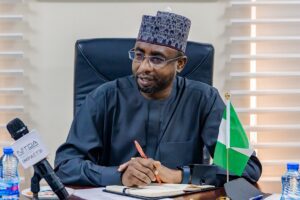


Starlink halts orders in Nigeria due to regulatory approval delays
Elon Musk’s Starlink has temporarily halted orders for its residential internet kits in Nigeria, citing the need for regulatory approval from the Nigerian Communications Commission for its recent price hike.
The company does, however, accept orders for its premium Business Plan, which permits it to charge N159,000 for a monthly subscription, as opposed to N38,000 for the Residential Plan.
Starlink’s decision comes as the company seeks to comply with Nigerian regulatory requirements.
“We’re committed to providing high-speed internet in Nigeria and are working closely with regulators to make adjustments that will improve the customer experience.
“Until these changes are approved, we are placing new Residential orders on hold,” the company stated.
It was previously reported that Starlink had halted new orders in five major cities due to capacity issues: Lagos, Abuja, Port-Harcourt, Benin City, and Warri.
The present suspension, however, cut across Nigeria and is predicated on the necessity to raise prices—a decision that is not supported by the regulator.
Since the Space X-linked company’s official launch in Nigeria in January of last year, demand for Starlink services has skyrocketed in the country.
Starlink in September announced a 97 per cent increase in monthly subscriptions to N75,000 and a 34 per cent hike in Starlink kit prices to N590,000, to take immediate effect.
For new users, the company also increased the Starlink kits (hardware) by 34 per cent from N440,000 to N590,000.
The company justified the increase by pointing to “excessive inflation” in a message sent to its customers.
The announcement caused controversy in the Nigerian telecom industry as local operators accused the NCC of using a double standard by permitting Starlink to raise prices, even though they had appealed to the regulator for years.
However, in response, the NCC stated that it disapproved of Starlink’s price hike.
The telecom watchdog noted that Starlink’s actions were against the Nigerian Communications Act, 2003’s Sections 108 and 111 as well as the license requirements pertaining to rates.



